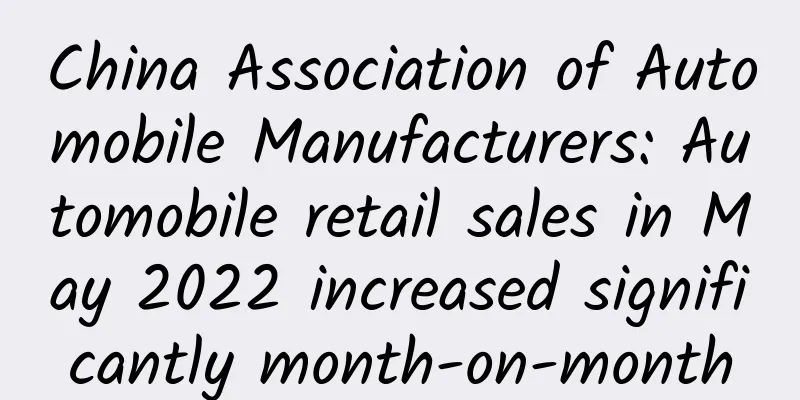Google is back. Do we still need it after years of absence?

|
Preface: Recently, relevant media reported that Google had quietly registered a wholly foreign-owned company, The Paper Information Technology (Shanghai) Co., Ltd., in the Shanghai Free Trade Zone at the end of 2014. The company's business scope includes information technology development, computer software development, computer system integration, etc. It seems that Google's return to China is a foregone conclusion and will soon be implemented. So what impact will Google's return have on the Chinese market after five years away from the market? What happened in China after Google left? Before Google left China, smartphones were not yet popular in China and its main business was search services. Five years later, Google has taken over half of the smartphone market. In 2010, due to the special Internet environment in China, Google announced the closure of its office in mainland China. Only the Hong Kong office was retained in Greater China. Google lost its original 20% share in the search market to others. Since then, it is difficult to see Google products in the mainland market. However, 2010 was the first year for the popularization of smart phones in China, and a large number of smart phones priced at 1,000 yuan were madly flooded into the market through operator channels. These smart phones were equipped with Google's Android system. Since Google has withdrawn from the Chinese market, all mobile phones launched in China must have Google services removed. This can be seen from the early Android phones, when almost all mobile phones from operator channels were not optimized and were equipped with native Android systems, but simply removed Google services. However, with the success of Xiaomi's MIUI and HTC's SENSE UI, domestic mobile phone manufacturers have also moved towards customized systems based on the underlying Android. Google's own Gmail, Google Maps, PLAY Store, etc. have also been replaced by some more down-to-earth domestic applications. Domestic mobile phones are already moving further and further away from Googleization. In addition, Google's search business has been abandoned in China, and its market share has been completely divided up by Baidu, 360, Sogou and other domestic search engines. Although Google's engine and search ranking are much more advanced than Baidu, users who have been blocked for many years still have no habit of opening Google. From this point of view, it seems that Google's return to China has little impact on the Chinese mainland market. Will there be any changes after Google returns to China? First of all, although the Chinese market seems to have been dominated by major domestic giants in terms of search services, the domestic search market is not optimistic. The market share of some search engines is obtained by bundling with browsers and other applications. In recent years, the emergence of phenomena such as ranking by money and sorting search results by purchased keywords has made it difficult for users to see what they really want on the first page of search results, which has been questioned by many users. Google Search is relatively fairer and has certain advantages over domestic manufacturers in terms of interface design and interaction. However, if Google Search wants to gain a share of the domestic market, it still needs to work harder on localization. In the mobile phone market, Google still has a lot of say for most Android phone manufacturers that use free and open source software. In the years since Google withdrew from China, due to the loss of supervision over the app market, some low-quality apps and rogue software can be found everywhere in the app store. And because there is no unified standard, the UI and operation logic of each app are also different. All these inharmonies have led to users' impression that Android phones are slow and difficult to operate. If Google launches an official PLAY store after its return, it will undoubtedly standardize the entire Android application market. It will also better support genuine software through software purchases, thus changing the current situation in the Chinese application market where software revenue is supplemented by advertising placement, thereby better optimizing the user experience. This is also good news for players who like to use games to play foreign masterpieces. In the past, because some foreign game masterpieces required the support of the Google Store, many games could not be played after downloading. Or you can only download informally authorized cracked versions through third-party markets. This is not only true for stand-alone games. For the strategic online game "Clash of Clans" that was popular in the mobile market in the past few years, due to the lack of Google PLAY market, players will not save their original data after clearing their mobile phone data or changing their mobile phones. They can only silently give up playing or start from scratch. After Google returned to China, the Google Market supported the operation of foreign game masterpieces and the subsequent purchase of level props, and also supported the online storage of online game data. The advantage of Google services lies not only in the Play Store, but also in the integration of multiple application products in one account. That is, Google Maps, Notes, Browser, Store and GOOGLE+ can all serve you at the same time. For example, if you add a time on Google Notes that you will go to a certain place the next day, Google Maps will send a reminder and plan a route within the scheduled time. When you arrive at the place, your GOOGLE+ friends with permission can see your location on the map... Another advantage is the operating platform of smart watches. Due to the lack of Google services, the previous generations of smart watches based on Google's Android Wear operating platform have not been launched in China (MOTO360, Huawei Watch). Many enthusiasts have not had a good experience after buying from overseas because of the "wall". If Google supports Google services on the domestic Android Wear platform after returning to China, it will inevitably affect the entire market. Conclusion: As the world's top technology company, Google's global influence is no less than that of BAT in China. In the few years since it left the Chinese market, Google seems to have become a word that Chinese people can only see in the news. In fact, its products are still indispensable in many of our daily lives. We still have reason to have more expectations about what impact Google will have on China after its return. As a winner of Toutiao's Qingyun Plan and Baijiahao's Bai+ Plan, the 2019 Baidu Digital Author of the Year, the Baijiahao's Most Popular Author in the Technology Field, the 2019 Sogou Technology and Culture Author, and the 2021 Baijiahao Quarterly Influential Creator, he has won many awards, including the 2013 Sohu Best Industry Media Person, the 2015 China New Media Entrepreneurship Competition Beijing Third Place, the 2015 Guangmang Experience Award, the 2015 China New Media Entrepreneurship Competition Finals Third Place, and the 2018 Baidu Dynamic Annual Powerful Celebrity. |
<<: Whether you understand it or not, the craze for web dramas adapted from 2D IPs has arrived.
>>: Can electric cars be the savior of Beijing's smog? The answer is no
Recommend
After the bonus period, you should take this complete guide to channel operation
The traffic dividend has passed, so how will traf...
Things to note when bidding for multiple websites at the same time! How to bid for ranking?
The site group strategy of SEM strategy is differ...
How to create exclusive brand day operation activities?
How to design a good operation plan ? It is essen...
Science and Technology News丨New variant strains may cause greater transmission risks, scientists build high-quality genome map of Chrysanthemi orchid
【Today’s cover】 In early winter, the forests on b...
The rise and fall of Chinese independent games
Not dominated by investors, developers are commit...
Practical information: Summary of views from the 4G mobile phone and virtual operator summit
From September 10 to 13, the 4G Mobile Phone and ...
The starting price of the Borgward BX3 is expected to be less than 100,000 yuan. Don't worry about whether it comes from Foton or Germany.
Since Borgward entered the Chinese market in 2016...
The first choice of Feng Shui spiritual objects for entrance examinations
June is approaching and the feeling of summer hea...
Community operation: How to increase the conversion rate of fission communities by 10 times?
Community is currently the most effective tool fo...
Dry and cold in the north VS wet and cold in the south, which one is colder?
Mixed Knowledge Specially designed to cure confus...
Latest discovery: Venus is still "alive", what does this mean?
On March 15, the journal Science published a disc...
Baidu announces testing of self-driving taxi Apollo Go in Beijing, available on Baidu Maps App
With the gradual maturity of 5G networks and hard...
Do you know this about remote sensing satellites?
Xinhua News Agency, Beijing, May 31 (Reporter Liu...
Case Analysis | How to build a correct and efficient data operation system?
As the concept of refinement continues to gain po...
How does a frog's slippery tongue catch a fly?
When it comes to frog hunting, the following scen...









